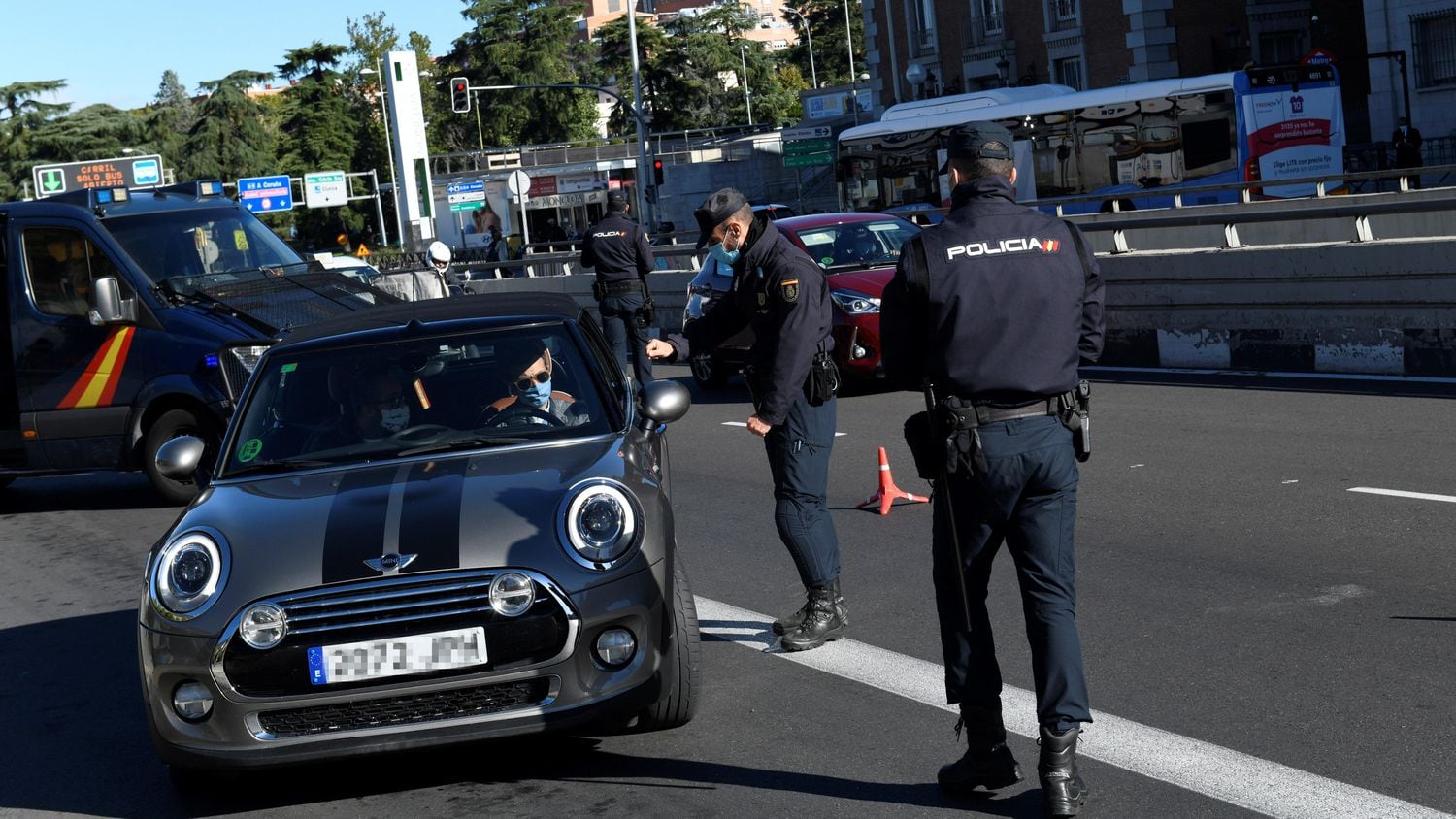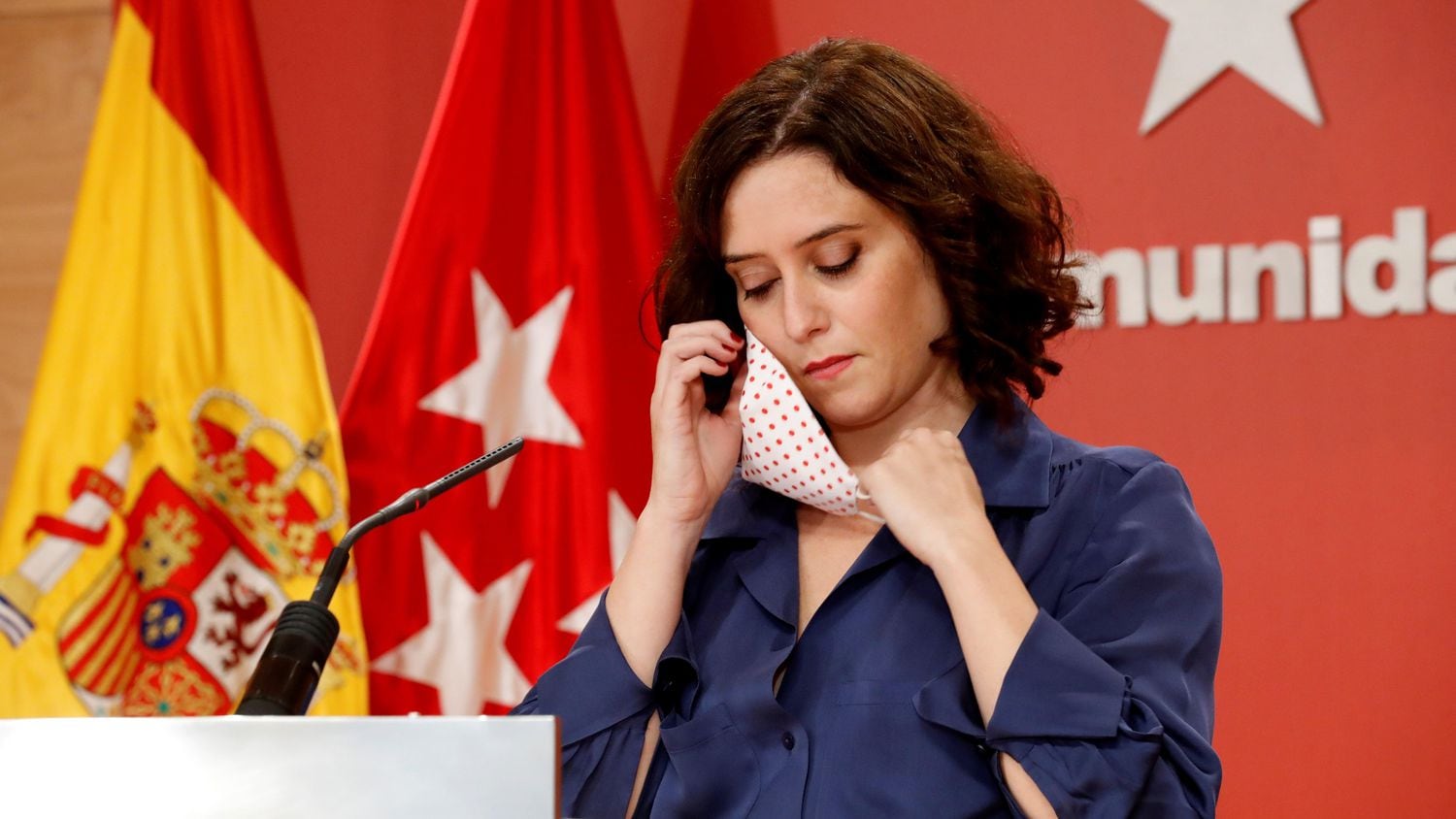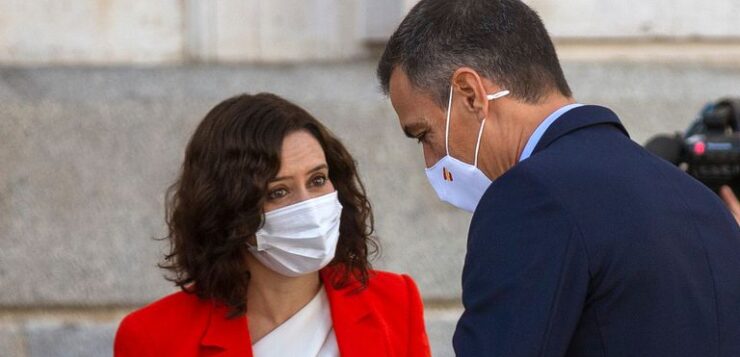The decision was taken by the Socialist Party-Unidas Podemos government after the regional administration of premier Isabel Díaz Ayuso failed to propose new restrictions by a 12pm deadline
The Spanish Cabinet on Friday decided to declare a state of alarm in the Madrid region for a 15-day period, in a bid to get coronavirus infections under control. It did so despite the fierce opposition of the regional government, which has been resisting the central administration’s calls in recent weeks to implement stricter measures to control the epidemic. The restrictions will be applied in the municipalities of Alcobendas, Alcorcón, Fuenlabrada, Getafe, Leganés, Madrid, Móstoles, Parla and Torrejón de Ardoz.
A legal and political battle over how to contain the virus while protecting the economy has been openly playing out between the central government, headed by a center-left coalition of the Socialist Party (PSOE) and Unidas Podemos, and the Madrid regional government, run by a center-right alliance of the Popular Party (PP) and Ciudadanos (Citizens), propped up by the far-right Vox.
New measures were agreed on last week by a majority of the country’s regions, and involved a perimetral confinement for municipalities with more than 100,000 residents should a series of criteria be met, as well as other rules such as early closing times for establishments and limited capacity in bars and restaurants. Last Friday, amid the opposition of the regional government, 10 cities in Madrid – those listed above, plus Alcalá de Henares, which has not been removed from the list due to an improvement in its coronavirus data – saw the measures introduced.

But the Madrid High Court on Thursday struck down the confinement measures in the government’s restrictions, meaning that the 4,786,948 Madrileños who had been subject to the lockdowns in their municipalities were free to move around once more and could not be fined for doing so. The court ruled that the government could not limit the fundamental right of freedom of movement without resorting to a state of alarm. The Castilla y León High Court, however, today ratified the implementation of the same measures in the municipalities of León, Palencia and San Andrés del Rabanedo.
Article 116 of the Spanish Constitution describes three legal categories for emergency situations: a state of alarm, state of emergency and state of siege (in Spanish: estado de alarma, estado de excepción and estado de sitio). It was the first of these scenarios that was implemented by the central government on a nationwide basis in March, at the outset of the pandemic, and that was used to lock down residents of Spain in their homes to flatten the curve of the coronavirus. In this case, the government has made clear that the restrictions will not be as severe: they will just be applied to the Madrid region, and will involve the aforementioned perimetral confinement of municipalities, along with other previously implemented measures aimed at reducing social contact.
According to La Moncloa prime ministerial palace, after returning late last night from a visit to Algeria, Prime Minister Pedro Sánchez of the PSOE called the regional premier of Madrid, Isabel Díaz Ayuso of the PP, to offer her three possible ways out. Her administration could either implement restrictions based on a 1986 public health law; it could request the declaration of a state of alarm, so that the central and regional governments implement it on a joint basis; or the Spanish government would unilaterally declare the state of alarm, without the need for the regional authorities to previously file a request to do so. Sánchez gave Ayuso until 12pm today to come up with a response.
By the time that the Cabinet meeting began on Friday, however, the central government had heard no word from Ayuso. Deputy Prime Minister Carmen Calvo called the deputy premier of Madrid, Ignacio Aguado, shortly after the start of the meeting to ask why Ayuso had not called. Soon after there was contact between the two sides, but Ayuso refused to support the state of alarm, prompting the central government to take unilateral action.
According to government sources, Sánchez explained to Ayuso that action needed to be taken to protect the health of Madrileños, and there was no more time to waste before declaring the state of alarm. Both leaders agreed that over the next two weeks, their teams would continue to speak about possible scenarios.

Health Minister Salvador Illa and Interior Minister Fernando Grande-Marlaska were due to hold a press conference after the Cabinet meeting to explain the measures, which will come into immediate force. For the government, there is no time to lose, given that this Monday is a national holiday and the administration wants to avoid thousands of Madrileños taking advantage of the current legal loophole to leave the region headed for second residences, the countryside or the coast. The Interior Ministry is planning on setting up police checks on the roads out of Madrid from 3pm onward, Patricia Ortega Dolz reports.
The deputy premier of Madrid, Ignacio Aguado, posted a tweet stating that “the declaration of the state of alarm was avoidable. There were alternatives. Unfortunately we politicians have failed once again. The consequences will be paid for by citizens. I apologize for that.” Tensions have been running high between Aguado and the Madrid premier in recent weeks, with Ayuso having publicly undermined him on a number of occasions during this ongoing battle with the central government.
Madrid Mayor José Luis Martínez-Almeida, who is also the PP’s spokesperson, said that the declaration was “terrible news.” He added that “this is not what Madrileños want nor what the healthcare situation in Madrid requires.”
A further sign of the complete breakdown of relations between the two governments was the fact that the Madrid regional health chief, Enrique García Escudero, held a press conference at around 12pm announcing the areas that his government wanted to confine – under similar measures the region announced several weeks ago. But as he was speaking the Cabinet was approving the state of alarm, meaning that the order that Escudero was explaining was never going to be implemented.
Before the Cabinet meeting, Deputy Prime Minister Carmen Calvo was unequivocal. “If the regional government can’t [take control of the pandemia], we will do it ourselves,” she said.
Ayuso, meanwhile, accused Sánchez of leaking the declaration of the state of alarm to the press minutes before her final attempt to reach a deal. “They have refused to negotiate the region’s healthcare order,” PP sources claimed on Friday.
To extend the emergency situation further than the initial two weeks, Sánchez will have to seek the approval of the lower house of parliament, the Congress of Deputies. The government lacks a working majority, however, meaning that securing the support required from other parties will be complicated. Implementing the state of alarm without the support of the regional government, what’s more, will bring with it a host of other problems.
Based on reporting by Carlos E. Cué and Manuel Viejo.
English version by Simon Hunter.





